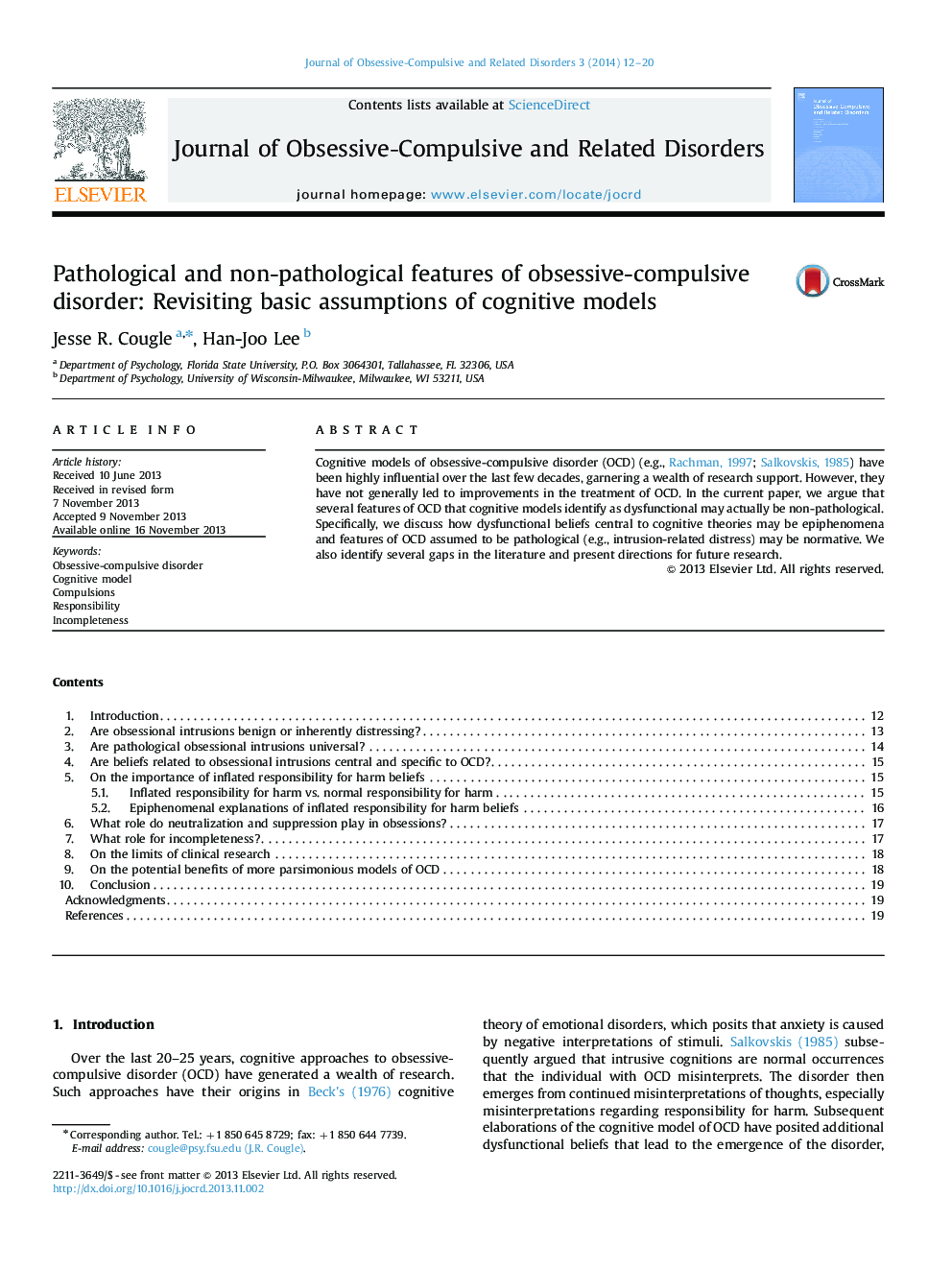| Article ID | Journal | Published Year | Pages | File Type |
|---|---|---|---|---|
| 912295 | Journal of Obsessive-Compulsive and Related Disorders | 2014 | 9 Pages |
•We considered basic assumptions of cognitive models of OCD.•Evidence suggests some obsessive beliefs are epiphenomena.•Other features of OCD considered pathological may be normative.•Gaps in the literature and future research directions are presented.
Cognitive models of obsessive-compulsive disorder (OCD) (e.g., Rachman, 1997 and Salkovskis, 1985) have been highly influential over the last few decades, garnering a wealth of research support. However, they have not generally led to improvements in the treatment of OCD. In the current paper, we argue that several features of OCD that cognitive models identify as dysfunctional may actually be non-pathological. Specifically, we discuss how dysfunctional beliefs central to cognitive theories may be epiphenomena and features of OCD assumed to be pathological (e.g., intrusion-related distress) may be normative. We also identify several gaps in the literature and present directions for future research.
